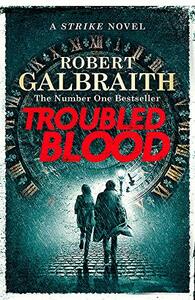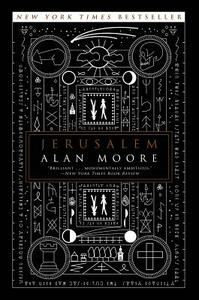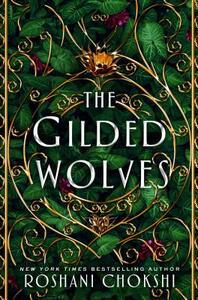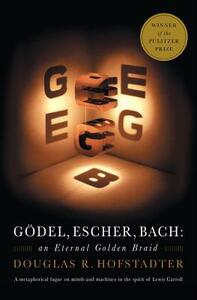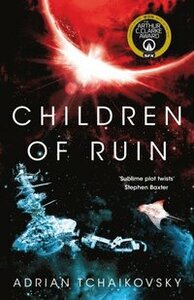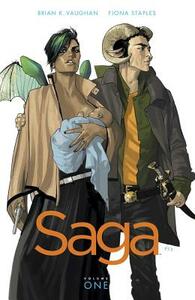You need to sign in or sign up before continuing.
Take a photo of a barcode or cover
michaelmarshall's Reviews (251)
First the basics: this is a really entertaining mystery. A lot of people pointed out that it's long ("longer than Middlemarch") but it rattles by: there are lots of threads and smaller mysteries, all of which play into the central missing-person case. There's also a lot to it: it touches on domestic violence, forced marriage, intersectionality (there is a subplot about a black working-class woman and how she is treated by police and her colleagues), society's treatment of people with mental retardation, nationalism, and suicidal ideation. No doubt it could be made shorter, but you'd quickly start losing substance - the length doesn't come from waffle, as it's quite tightly written. And I found the ending rather moving.
So, the transphobia stuff. JK Rowling's essay on trans issues is a horrorshow of misunderstandings, exaggerations and flat-out untruths. As someone who admired her for many years, I've been saddened and angered by how badly she's been getting this wrong. And I'm not sure if I'll be buying any more of her books (this one was pre-ordered months ago).
That said, I don't think this book contains anything transphobic. That idea was ginned up by a review saying it was "about" a male serial killer who disguises himself as a woman to lure his victims, and the idea that this ties back to Rowling's stated fears about men entering women's toilets etc. The thing is, and without getting into spoilers: the cross-dressing is a very minor element in the story, inspired by the real-life case of Jerry Brudos. At no point does the book make any link to trans-related policy, or indeed touch on trans issues at all. There's no suggestion that the serial killer in the book is trans or anything like it: he's just a psychopath who uses trickery, including disguises.
Conceivably Rowling *meant* this to be a story that implicitly argues for restrictions on trans rights, limits to self-identification etc. But if that was her intent, she did a very bad job of carrying it out. I can just about imagine seeing the book through that lens, but when the book is so clearly about the other topics I mentioned, when it has pages and pages about, e.g. domestic violence, and nothing at all about trans people or trans politics, I think it's the wrong lens.
So, the transphobia stuff. JK Rowling's essay on trans issues is a horrorshow of misunderstandings, exaggerations and flat-out untruths. As someone who admired her for many years, I've been saddened and angered by how badly she's been getting this wrong. And I'm not sure if I'll be buying any more of her books (this one was pre-ordered months ago).
That said, I don't think this book contains anything transphobic. That idea was ginned up by a review saying it was "about" a male serial killer who disguises himself as a woman to lure his victims, and the idea that this ties back to Rowling's stated fears about men entering women's toilets etc. The thing is, and without getting into spoilers: the cross-dressing is a very minor element in the story, inspired by the real-life case of Jerry Brudos. At no point does the book make any link to trans-related policy, or indeed touch on trans issues at all. There's no suggestion that the serial killer in the book is trans or anything like it: he's just a psychopath who uses trickery, including disguises.
Conceivably Rowling *meant* this to be a story that implicitly argues for restrictions on trans rights, limits to self-identification etc. But if that was her intent, she did a very bad job of carrying it out. I can just about imagine seeing the book through that lens, but when the book is so clearly about the other topics I mentioned, when it has pages and pages about, e.g. domestic violence, and nothing at all about trans people or trans politics, I think it's the wrong lens.
The high rating is for the many passages of this that are utterly enthralling, mindbogglingly imaginative, and profound. It misses getting five stars because it really is too long: many, many pages could be removed and the book would be better for it. Also there's a chapter in the style of Finnegan's Wake, which is just cruel. You have to go into it in the right frame of mind, and maybe do it on holiday when you have time to properly sink into it. You'll get a *lot* out of it - just don't expect an easy read.
I really wanted to like this but was disappointed. It has some terrific elements: some really well-drawn characters (Laila and Zofia in particular) and a richly imagined world. It also attempts to unpick the ways in which luxurious societies (in this case the Belle Epoque of late-1800s Paris) enable atrocities and bolster institutional racism. And this is all interwoven with a story of heisting, puzzle-solving, teamwork, conspiracy and unrequited love.
It sounded great on paper! And yet for me it somehow didn't come off at all. I'm struggling to put my finger on why. I think one issue is that I didn't like Séverin, the main character: the book seems to think he's a romantic hero, but I just thought he was a spoiled aristocratic prick, so when he started behaving like an arse in the final few chapters it wasn't any kind of twist, it was just the way someone like that would behave. Maybe this was The Point, but if so it didn't come off for me. The novel also underdevelops Tristan, which is a problem because it turns out we need to care about him. And finally the disparate elements of the book don't really mesh: the commentary on the Belle Epoque is pretty irrelevant to the actual plot, so it feels shoehorned.
It sounded great on paper! And yet for me it somehow didn't come off at all. I'm struggling to put my finger on why. I think one issue is that I didn't like Séverin, the main character: the book seems to think he's a romantic hero, but I just thought he was a spoiled aristocratic prick, so when he started behaving like an arse in the final few chapters it wasn't any kind of twist, it was just the way someone like that would behave. Maybe this was The Point, but if so it didn't come off for me. The novel also underdevelops Tristan, which is a problem because it turns out we need to care about him. And finally the disparate elements of the book don't really mesh: the commentary on the Belle Epoque is pretty irrelevant to the actual plot, so it feels shoehorned.
Very fun and enlightening biography of the Kinks. It’s particularly good on all the material they recorded after their 60s heyday, which as a Brit I’m barely aware of, and on the group’s dysfunctional relationships.
A fun but lightweight account of the band’s history, very much from a fan perspective and largely avoiding any real criticism (beyond knocking some of the albums).
This is fun and exciting and thought-provoking, but not quite on a par with its predecessor Children of Time (which is one of my favourite books of the last decade). CoR suffers from a slightly over-complicated setup that necessitates an awful lot of backstory, so it takes over 100 pages to really get going. It’s a little baggy compared to CoT, which for all its scope maintains a furious momentum.
Sufficiently great that I might sell this edition, which collects the first 6 issues, and buy the compendium of the first 54 issues instead
A lively and clear history of Einstein’s theory of general relativity, from its origins to the use of it to predict and describe black holes, the mapping of the universe’s large-scale structure, and attempts to marry it with quantum mechanics. It’s let down slightly by a rather weak concluding discussion about what lies beyond general relativity, which is necessarily open-ended but is sometimes vague. The majority of the book is very solid though!
